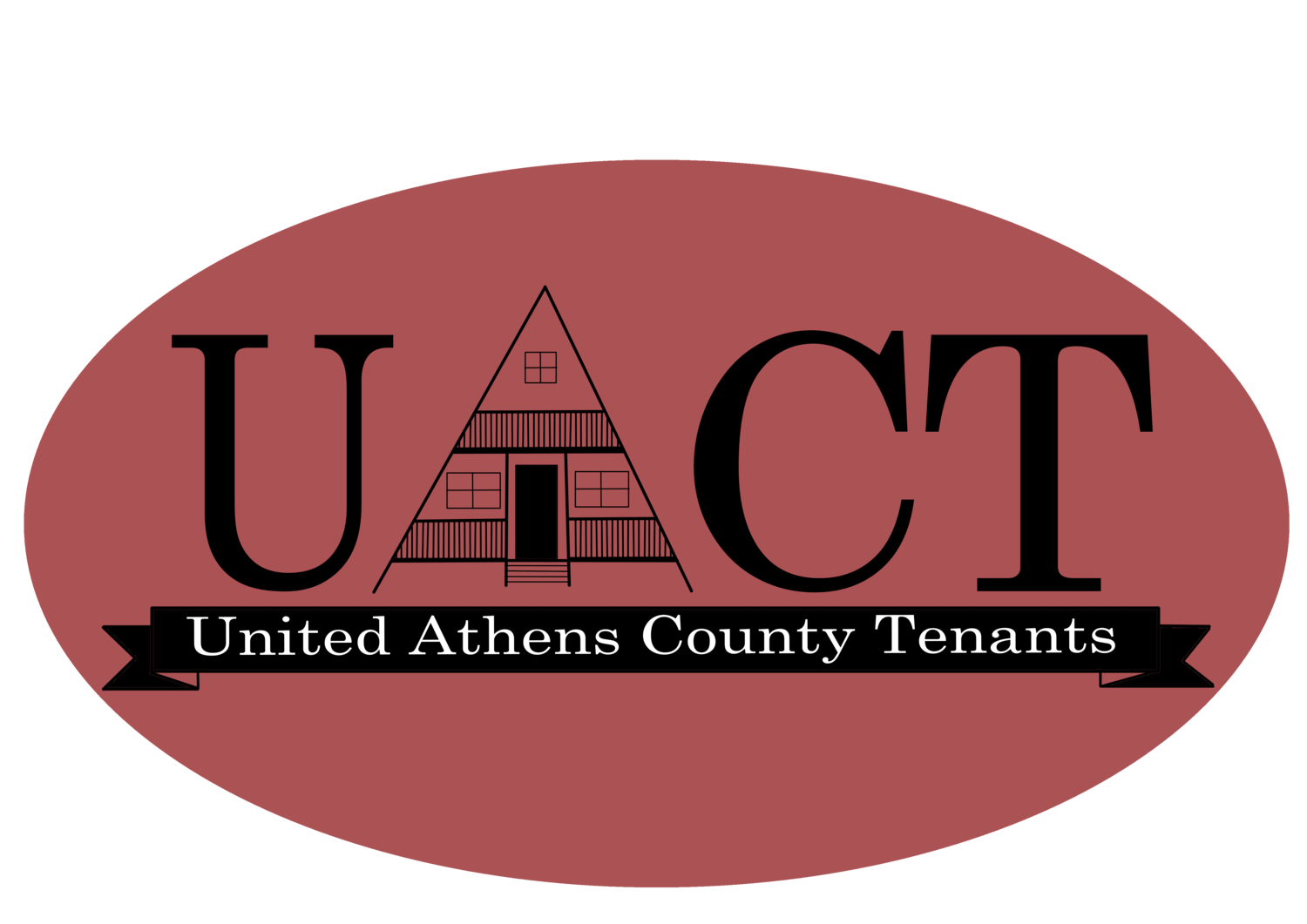Evictions
Private landlords
The cause of action for an eviction in Ohio is called a forcible entry and detainer.
ORC 1923 (http://codes.ohio.gov/orc/1923.02)
Nonrenewal of the lease
In Ohio, year long leases will automatically convert to month-to-month when the lease ends. However, a landlord can decide to not renew your lease beyond a year.
If you have a month-to-month lease, a landlord must provide 30-day notice to evict.
ORC 5321.17 (http://codes.ohio.gov/orc/5321.17)
Notice to Leave the Premises
A landlord can evict a tenant with a three-day notice for nonpayment of rent, illegal drug activity or criminal activity.
ORC 5321.17(C) (http://codes.ohio.gov/orc/5321.17)
For violations of the lease that affect health and safety, a landlord can give the tenant 30-day written notice specifying the act or omission that violates the tenant's obligations under the lease/rental agreement. The tenant then has a right to cure or remedy the situation. If the tenant fails to remedy the situation, a landlord must serve the tenant with a 3-day notice and file an eviction with the court.
ORC 5321.11 (http://codes.ohio.gov/orc/5321.11)
The notice to leave the premises must have a paragraph that reads, "You are being asked to leave the premises. If you do not leave, an eviction action may be initiated against you. If you are in doubt regarding your legal rights and obligations as a tenant, it is recommended that you seek legal assistance."
ORC 1923.04 (https://codes.ohio.gov/orc/1923.04)
Eviction Hearing
In Ohio, if an eviction hearing has been scheduled, you must attend the hearing. If you do not attend the hearing, the judge or magistrate will grant default judgment to the landlord and a writ of possession will be issued. If you attend the hearing, you may be able to work out a deal with the landlord to avoid the eviction or to get more time to move out. This means you have “lost” your case and future landlords will be able to see the eviction on your record.
If you have already moved out of the unit, you must still attend the hearing to inform the court that you are gone. Otherwise, the court will not know that you have moved out and they may issue a writ of possession against you.
Writs of possession are given by the court. A writ means that you no longer have a legal interest in the property and may be “set out” or forcibly moved out of the property by the landlord. Usually, the bailiff of the court will come on the day that the set out has been scheduled to observe the set out and to ensure that the landlord and tenant act lawfully during the set out.
Illegal Lockout/“Self-Help” Evictions
It is illegal in the state of Ohio for a landlord to set out a tenant without a writ of possession from the court. If a landlord tries to move your stuff out, changes the locks, shuts off utilities or does anything else to force you to move without obtaining a writ of possession from the court, you can
ORC 5321.15 (http://codes.ohio.gov/orc/5321.15v1)
“Second Cause”/Money Damages
Even after you’ve been evicted, a landlord can also sue you for money damages. This means they could recover money from you to cover the cost to repair any damage you did to the property, filing fees or attorney fees.
A tenant can counterclaim against the landlord for any damages or costs that you had to pay to fix or repair the property (heating, cooling, plumbing, extermination, etc.).
Subsidized housing
Reasons to evict
A landlord of subsidized housing must provide “good cause” to evict you. Good cause could include: material violation of the lease, criminal activity by you or a visitor, illegal drug use or alcohol abuse by you or a visitor, multiple repeated minor lease violations.
Notice
Section 8 housing choice voucher: 3-day notice required in writing
Public housing: if non-payment, 14-day notice; for most other violations, 30-day notice
Under federal law, you have a right to a grievance hearing if you are being evicted from public housing - submit your request in writing to the landlord
Private multifamily subsidized housing: if you are being evicted for “other good cause”, 30-day notice; if non-payment or a serious lease violation, less time but either way you have a right to a meeting (request in writing) with the landlord or management to discuss the eviction
Retaliation
A landlord may not retaliate against a tenant by increasing the tenant’s rent, decreasing services that are due to the tenant, or bringing or threatening to bring an action for possession of the tenant’s premises because: (1) The tenant has complained to an appropriate governmental agency of a violation of a building, housing, health, or safety code that is applicable to the premises, and the violation materially affects health and safety; (2) The tenant has complained to the landlord of any violation of section 5321.04 of the Revised Code; or (3) The tenant joined with other tenants for the purpose of negotiating or dealing collectively with the landlord on any of the terms and conditions of a rental agreement.
ORC 5321.02(A) (http://codes.ohio.gov/orc/5321.02v1)
